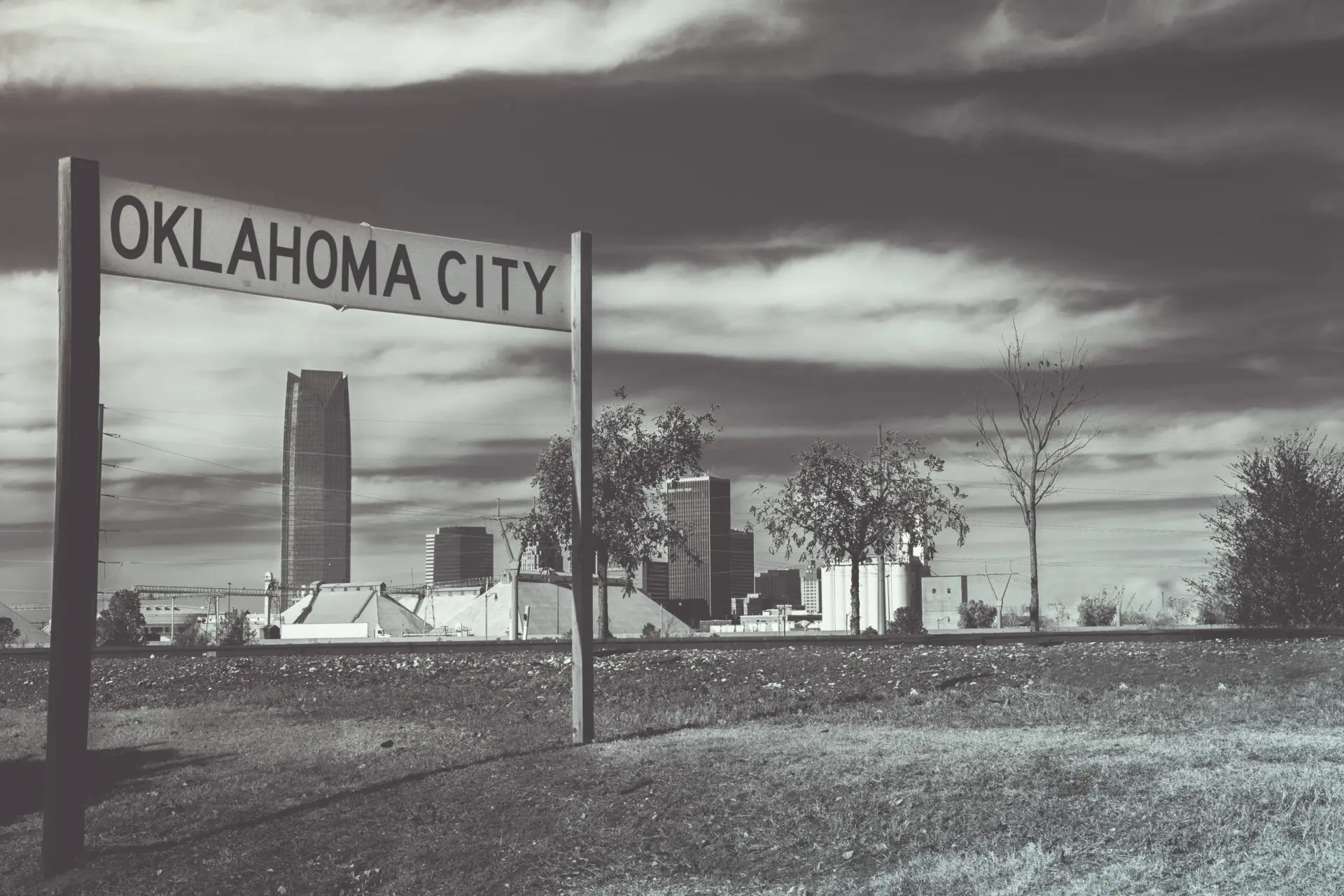Despite the blazing summer sun, dozens of concerned citizens, from varying racial backgrounds, took part in the “Hold Your Hands Up, Don’t Shoot! Make Your Vote Count” rally on the north steps of the Oklahoma State Capitol on Thursday.
This rally, of course, was in response to the shooting and killing of unarmed Ferguson, Mo. resident Michael Brown.
The “Hold Your Hands Up, Don’t Shoot” rally was organized by State Rep. Anastasia Pittman (D-Oklahoma City), who explained that local activists were looking to respond to the subsequent events and unrest in Ferguson, which included peaceful protests, property damage and a militaristic quashing of protests by cops armed with tear gas, stun grenades and rubber bullets.
“I’m hot, you’re hot, but we’re here for a purpose,” Pittman told the sweltering crowd. She added that similar rallies of solidarity were taking place elsewhere in the state. Speakers included local clergy, peace, civil-rights and LGBT activists and other community leaders.
And while the Oklahoma City protesters at the Capitol today were calling for peace and justice for Brown, they were also there to remember those unarmed people – many of whom were African-American – who died at the hands of law enforcement.
“We have over 400 young people (around the U.S.) who were unarmed who have been shot,” added Pittman.
Holding a blue sign which read: “Rest In Peace. Run Down Killed by Goodwin,” Oklahoma City resident Derrick Myrks told assembled media that his relative, Ovie Woody, was allegedly killed by local law enforcement in 2005.
In the years since the incident, where Myrks claimed “police wouldn’t let an ambulance get to the body” of Ovie Woody, then 23. Myrks suggested that racism among the ranks of the police played a major role in Woody’s death.
“It’s been hell,” Myrks said. “I grew up in Norman, Oklahoma. I didn’t know racism until I came to Oklahoma City.”
Other signs included one that simply read “Luis Rodriguez = Michael Brown.” Rodriguez was the Moore man who died in police custody in February following an altercation with police outside the Moore Warren Theatre.
For Anthony Douglas with the local chapter of the NAACP, the message he wanted young people to take to hear was, “If you are approached (by police), don’t run.”
After each speaker, there was the call-and-response of “Hands up, don’t shoot.” And everyone would hold their hands up, just as they did in Ferguson, as featured in images seen around the world these past two weeks.
Another speaker, Erick Harris, reminded the crowd that people in Ferguson – and all Americans – have the constitutional right to peaceably assemble and engage in non-violent protest, as many did in Ferguson, before the police state cracked down, violating the civil rights of many there.
Harris recalled the words of the Rev. Martin Luther King, Jr. who said nonviolent action is “the sword that heals.”
Meanwhile, Adam Soltani, executive director of the Oklahoma chapter of the Council for American-Islamic Relations, said fellow Muslims “know what it is to come toe-to-toe with racism” and that Muslims do experience a rough go of it in America.
But Soltani added that people are seeking solutions and desire to work together.
“When I look out here, I see people who are ready to stand up for justice,” Soltani said, adding, “We are sick and tired of being sick and tired.”
For Scott J. Hamilton, executive director of the Cimarron Alliance, a lesbian, gay, bisexual and transgender civil-rights group in Oklahoma City, he answered the question of some in the audience as to why he was asked to speak.
“We (in the LGBT) community know a little something about injustice in Oklahoma,” Hamilton said, referencing how those in minority communities often live in “abject fear” of a white majority that largely controls the law enforcement and prison apparatus in this state.
Hamilton received cheers and applause when he noted that it was in the big building behind him – the State Capitol – where “racism, injustice and inequality” is allowed to take root in our state, through unjust legislation designed to hurt minorities and those with little or no voice.
It is racism, injustice and inequality, Hamilton said, “that is tearing our city, our and our nation to shreds.”
Many speakers also reminded those in attendance of the importane of exercising their right to vote.
Native Americans were also in the crowd – some holding signs for Mah-hi-vist Goodblanket, the unarmed young man in Custer County, Okla. who was shot seven times in December 2013 by sheriff’s deputies – and one of the Native American leaders present, David Hill, was asked to speak.
Hill, a Choctaw and member of the Leonard Peltier Defense Fund and the American Indian Movement (AIM) for over 40 years, noted the Goodblanket death and how law enforcement in that county (named after a genocidal maniac – George Armstrong Custer) were rewarded for their bravery in taking down the Cheyenne-Arapaho teen, slain in his parent’s home.
And Nathaniel Batchelder, director of The Peace House, teared up as he took to the lectern and said, “I’m sick to death of racism.”
And so was everyone else in the audience, all of whom hoped their message of solidarity would help lead to a better day.

